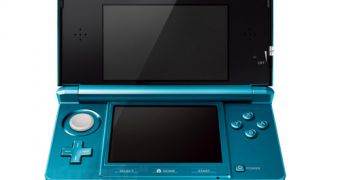Nintendo is serious about combating piracy on its new 3DS platform, and will even go as far as to 'brick' (permanently shut down) consoles that are using illegal devices like R4 carts or have played pirated games.
Nintendo's older DS model has been a victim of rampant piracy due to flash carts or R4 devices that allowed users to play back up copies of games, homebrew and, most of the times, pirated games on the portable console.
Now, with the new 3DS device, Nintendo is adamant that piracy will be stopped through a variety of measures, including mandatory firmware updates released every few months.
That hasn't stopped pirates from trying to mess with the device, and we already saw a 3DS running an R4 cart after the console went on sale in Japan.
Now, according to several reports from the land of the rising sun, Nintendo may be taking an even firmer stance on piracy and might try to remotely brick 3DS devices through firmware updates.
How can the company do such a thing? It all comes down to some of the features of the 3DS.
Thanks to the permanent WiFi connection, which enables systems like the StreetPass mode to work, the 3DS can automatically connect to the Internet through wireless networks and downloads the firmware updates.
Secondly, it seems that the 3DS has a special record of what games or devices were connected to the console, meaning it will permanently remember what games you played, legally or otherwise.
If illegal devices were used and the firmware update is made, this can result in the 3DS being bricked, meaning it won't start up.
This security measure has already prompted Japanese retailer Enterking to issue a notification, in which it says that it won't be buying back any 3DS units that are proved to have used "illegal or unauthorized devices."
As such, it seems that even if piracy may be possible on the Nintendo 3DS, the Japanese company will enforce a strict policy in order to stop it, even going so far as to render the consoles obsolete.
Nintendo hasn't issued a formal statement on how piracy will actually be treated, but expect harsh measures to be employed.

 14 DAY TRIAL //
14 DAY TRIAL //